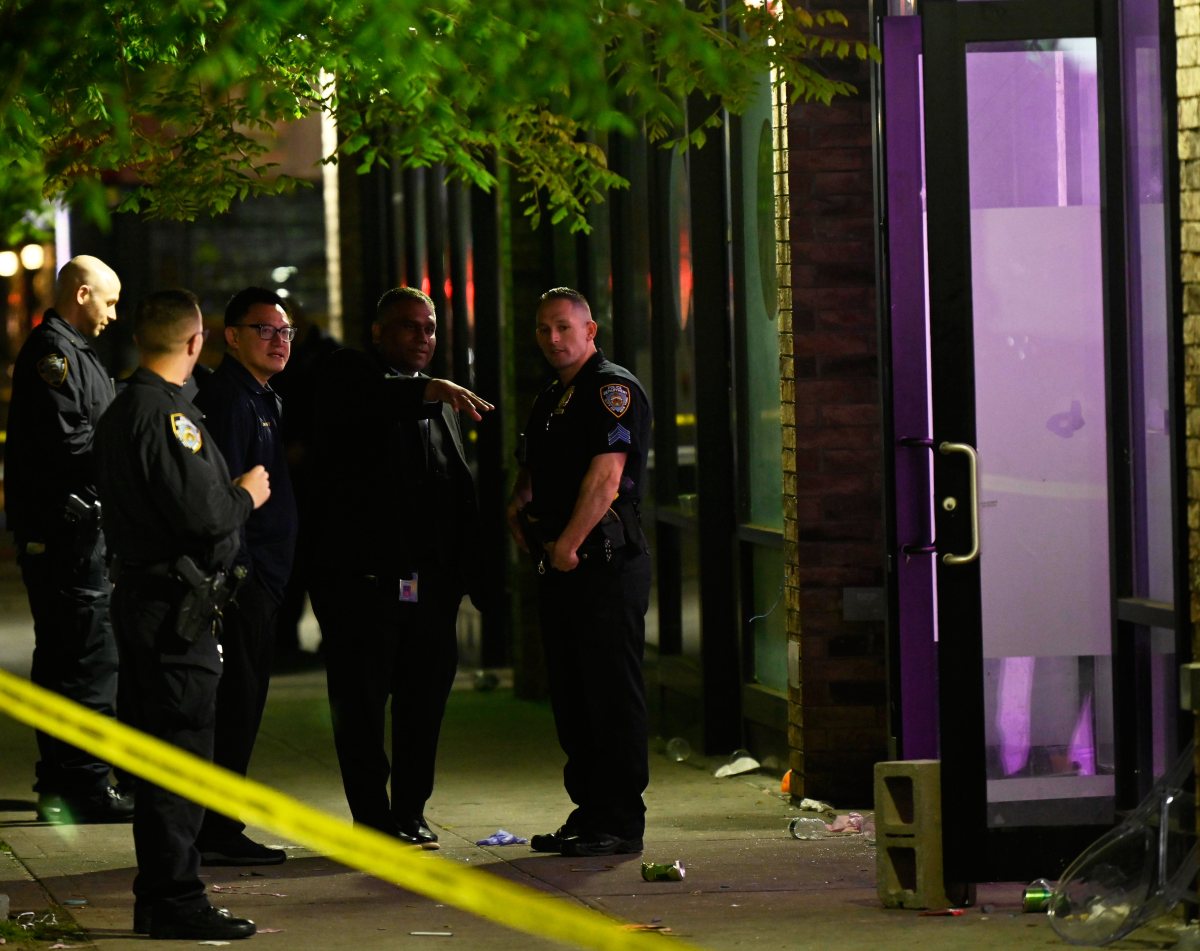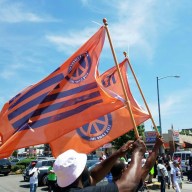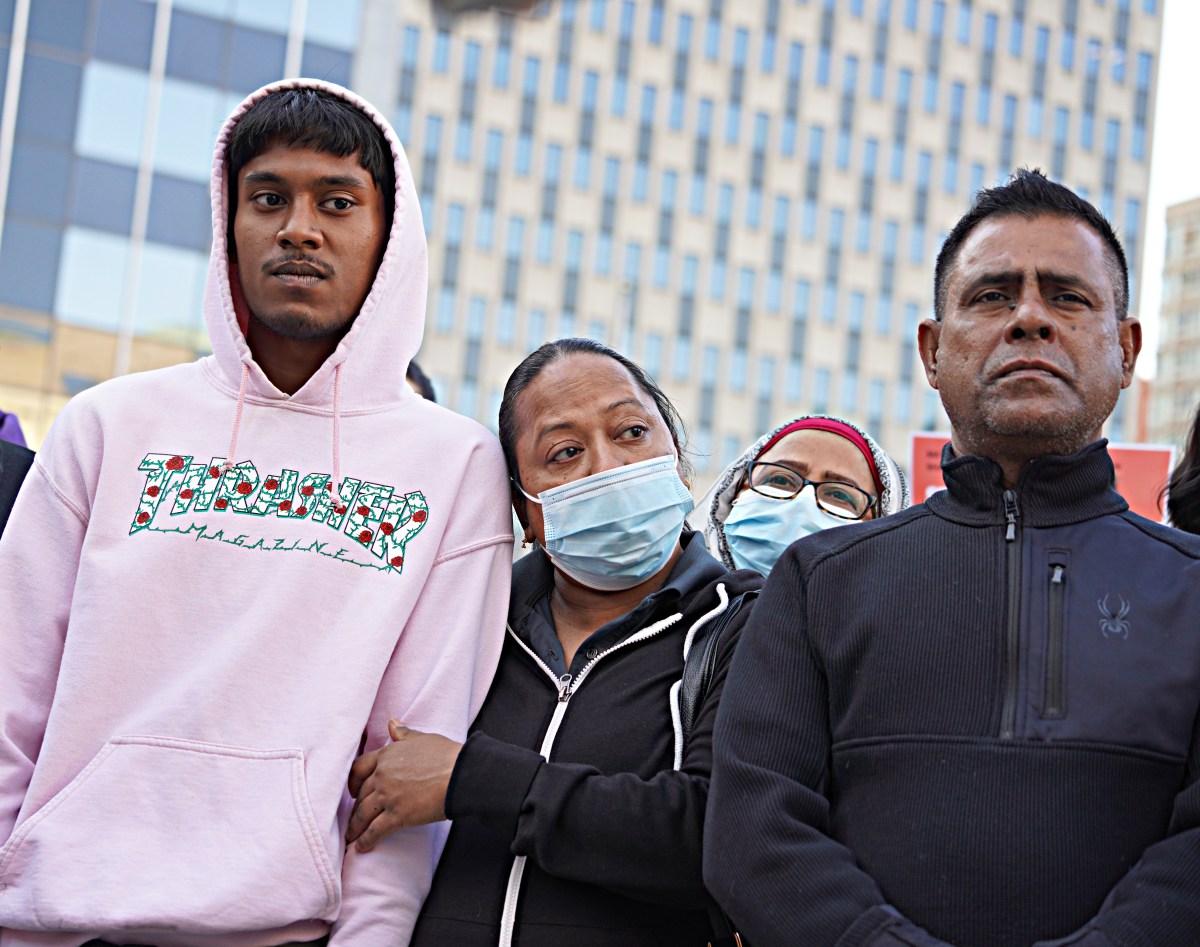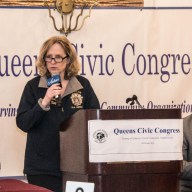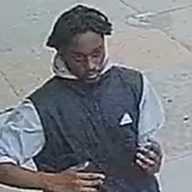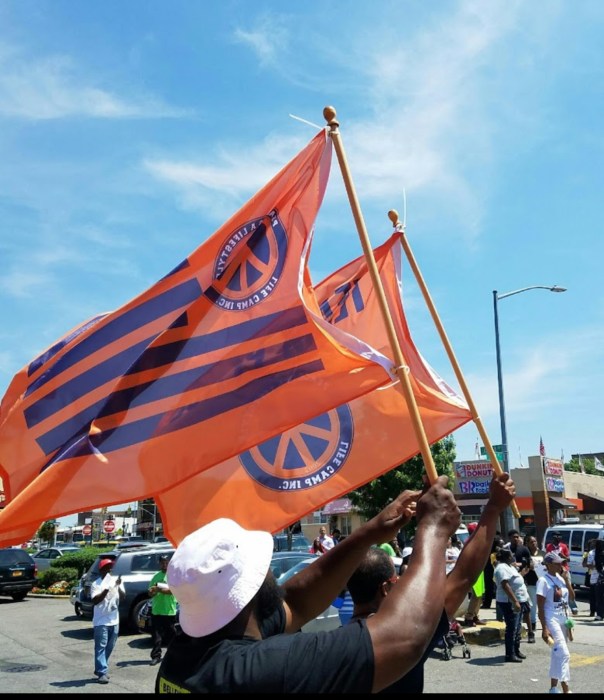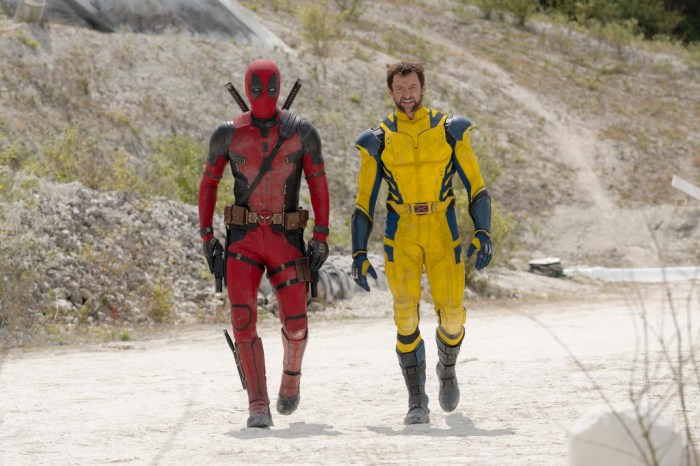By Alexander Dworkowitz
For the last year entrepreneur Kirk Watson has pushed his vision for downtown Flushing.
He hopes that anyone with a laptop computer soon will be able to stroll the area, from the Flushing Town Hall to shopping on Main Street, while logging on to the Internet for free without needing a wire.
Last week Watson came a step closer to fulfilling that dream when two of Flushing's politicians pledged to support his efforts.
Councilman John Liu (D-Flushing) and Assemblyman Barry Grodenchik (D-Flushing) appeared with Watson at Daniel Carter Beard Memorial Square at Main Street and Northern Boulevard at a Friday news conference to announce possible funding for Watson's organization.
“This is another way that Flushing is leading the way for the Big Apple,” Liu said. “This is going to be another reason why Flushing is a destination of choice.”
Watson established Cyber Oasis Wireless, a business at 35-48 Union St., last year.
His goal was to send a free wireless Internet signal across Flushing. Eventually he planned to charge money for the service.
His plan has changed slightly since then. He has established the Flushing Community Access Network, a non-profit organization that will provide the Internet signal for free indefinitely, Watson said.
His business, Cyber Oasis, now concentrates on selling cards needed for wireless access as well as other computer parts, and Watson also acts as a computer consultant.
Watson currently sends out a wireless signal from his office on Union Street and Northern Boulevard. Anyone with the proper WiFi card, which costs about $80, can log on to the Internet within a four-block radius of Watson's business.
“We believe that the Internet is a powerful tool,” Watson told the news conference. We believe that it is very useful, and it is becoming more and more important.”
In order to cover the remainder of downtown Flushing, Watson needs to set up three other nodes, which are basically antennae. He has picked the intersections of Main Street and Northern Boulevard, Main Street and Roosevelt Avenue, and Main Street and Kissena Boulevard as ideal locations for the remaining nodes.
Each node costs about $500 to install.
Liu said since the Flushing Community Access Network is a non-profit, it is eligible for discretionary funds. He may provide the funding to construct the three nodes, he said.
“We're providing a free benefit,” the councilman said. “It's not any kind of commercial endorsement. And that's why I decided to go ahead with it.”
While the Flushing Community Access Network may or may not receive government funding, Liu and Grodenchik said they could at least provide support to the organization by meeting with property owners and asking them to allow Watson to install a node on their roofs.
Grodenchik noted that unlike the installation of cable lines that require construction work, the nodes can be set up on top of buildings easily.
“One of the problems we have in New York City especially is the problem with infrastructure,” Grodenchik said. “Every time you need to put in another line, you have to dig up the street. The beauty of this is that there is no wire and nobody is being interfered with.”
Reach reporter Alexander Dworkowitz by e-mail at Timesledger@aol.com or call 718-229-0300 Ext. 141.








